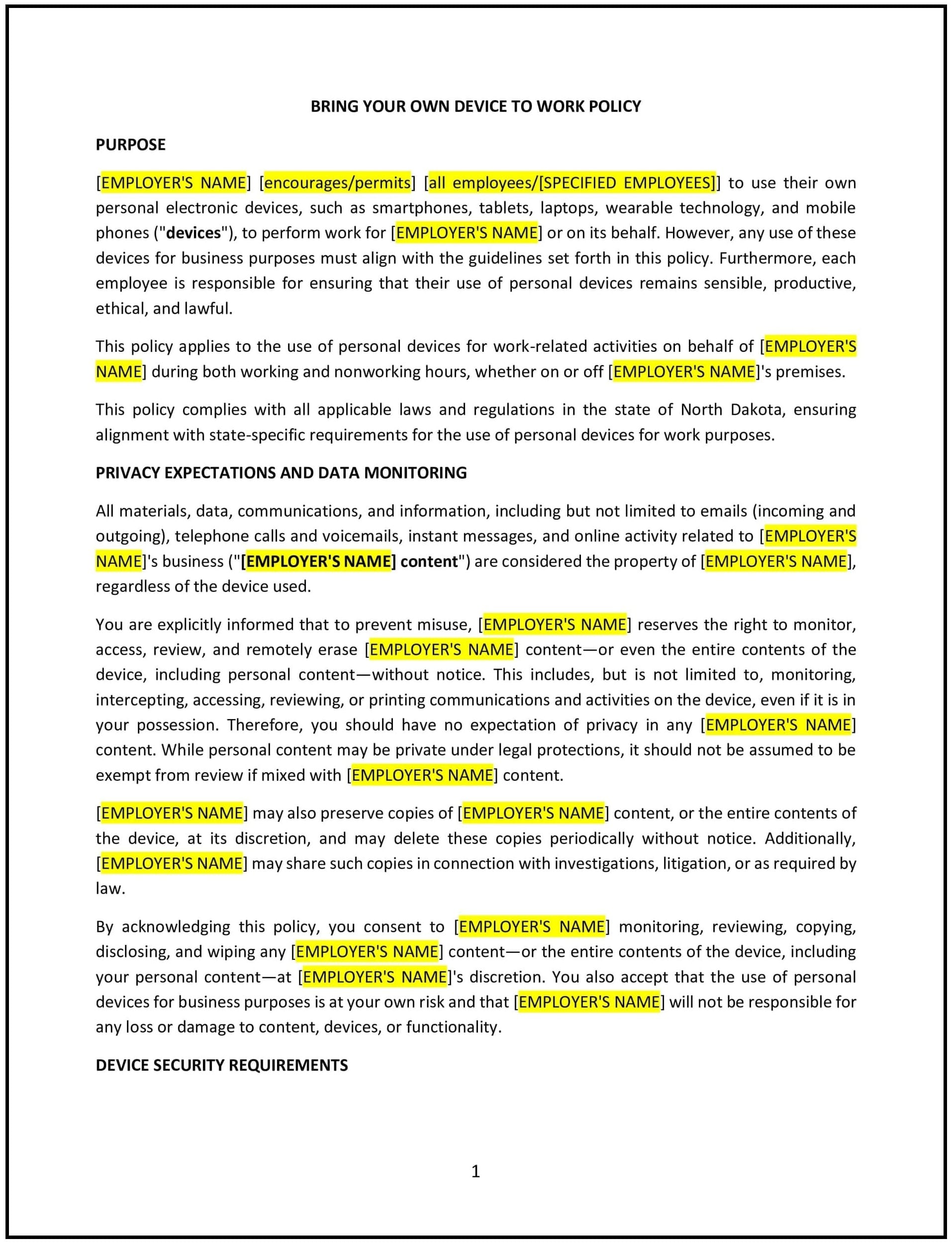Bring your own device to work policy (North Dakota): Free template
Got contracts to review? While you're here for policies, let Cobrief make contract review effortless—start your free review now.

Customize this template for free
Bring your own device to work policy (North Dakota)
This bring your own device (BYOD) policy is designed to help North Dakota businesses establish guidelines for employees using personal devices for work purposes. The policy outlines security measures, data protection protocols, and acceptable use to balance workplace flexibility with cybersecurity risks.
By implementing this policy, businesses can enhance productivity, protect sensitive data, and reduce IT-related risks associated with personal device usage.
How to use this bring your own device to work policy (North Dakota)
- Define permitted devices: Specify which personal devices (e.g., laptops, smartphones, tablets) may be used for work purposes.
- Establish security requirements: Require employees to install security software, enable encryption, and follow password protection standards.
- Outline acceptable use: Clarify appropriate work-related activities and restrictions on accessing unauthorized websites or applications.
- Implement data protection measures: Require employees to store and transmit company data securely.
- Address employer access rights: Define situations where the company may inspect or wipe data from a personal device, such as in case of security breaches or employment termination.
- Set liability guidelines: Clarify that employees are responsible for maintaining their personal devices, including software updates and security compliance.
- Review regularly: Update the policy based on emerging cybersecurity risks and workplace needs.
Benefits of using this bring your own device to work policy (North Dakota)
Implementing this policy provides several advantages for North Dakota businesses:
- Improves workplace flexibility: Allows employees to use their preferred devices while maintaining security.
- Enhances data security: Reduces risks of data breaches by enforcing cybersecurity protocols.
- Reduces IT costs: Lowers business expenses by minimizing company-provided hardware.
- Increases employee productivity: Enables employees to work remotely and access company resources efficiently.
- Reflects North Dakota-specific considerations: Aligns with regional cybersecurity best practices and workplace norms.
Tips for using this bring your own device to work policy (North Dakota)
- Require employees to sign a BYOD agreement: Ensure employees acknowledge security responsibilities and usage guidelines.
- Implement mobile device management (MDM): Use IT controls to secure business data on personal devices.
- Enforce regular software updates: Require employees to keep operating systems and security software up to date.
- Educate employees on cybersecurity: Provide training on phishing threats, secure data handling, and device protection.
- Adjust as needed: Update policies based on evolving security threats and technology changes.